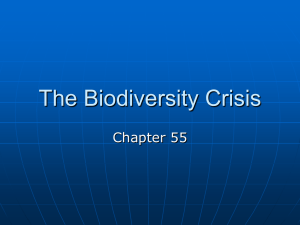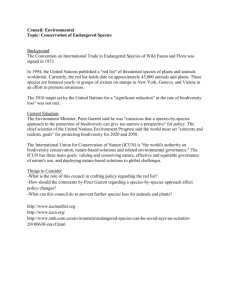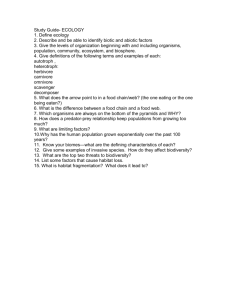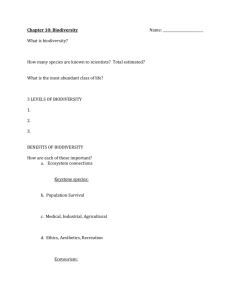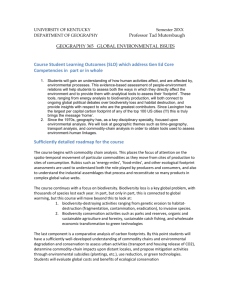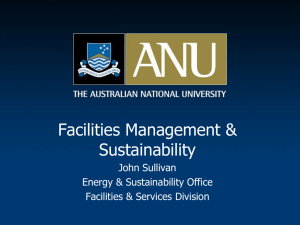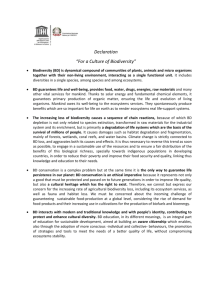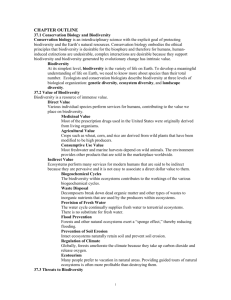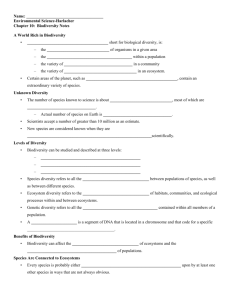Unit 2B reading notes
advertisement
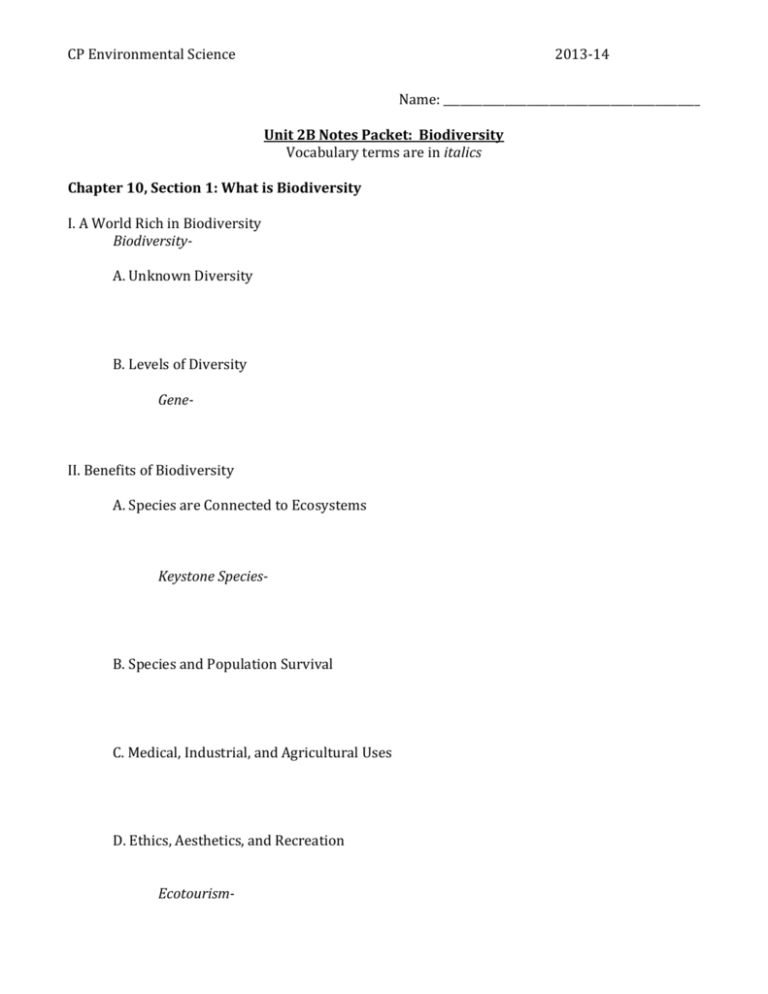
CP Environmental Science 2013-14 Name: ______________________________________________ Unit 2B Notes Packet: Biodiversity Vocabulary terms are in italics Chapter 10, Section 1: What is Biodiversity I. A World Rich in Biodiversity BiodiversityA. Unknown Diversity B. Levels of Diversity Gene- II. Benefits of Biodiversity A. Species are Connected to Ecosystems Keystone Species- B. Species and Population Survival C. Medical, Industrial, and Agricultural Uses D. Ethics, Aesthetics, and Recreation Ecotourism- CP Environmental Science Chapter 10, Section 2: Biodiversity at Risk (p.263-269) I. Current Extinctions A. Species Prone to Extinction Endangered SpeciesThreatened Species- II. How do Humans Cause Extinctions? A. Habitat Destruction and Fragmentation B. Invasive Exotic Species C. Harvesting, Hunting, and Poaching D. Pollution III. Areas of Critical Biodiversity Endemic SpeciesA. Tropical Rainforest B. Coral Reefs and Coastal Ecosystems 2013-14 CP Environmental Science C. Islands D. Biodiversity Hotspots E. Biodiversity in the United States Case Study: A Genetic Gold Rush in the Rain Forests Chapter 10, Section 3: The Future of Biodiversity (p. 270-275) I. Saving Species One at a Time A. Captive Breeding Programs B. Preserving Genetic Material C. Zoos, Aquariums, Parks, and Gardens D. More Study Needed 2013-14 CP Environmental Science II. Preserving Habitats and Ecosystems A. Conservation Strategies B. More Study Needed III. Legal Protection for Species A. U.S. Laws Endangered Species Act- B. Recovery and Habitat Conservation Plans Habitat Conservation Plan- IV. International Cooperation A. International Trade and Poaching B. Biodiversity Treaty- C. Private Conservation Efforts V. Balancing Human Needs 2013-14
